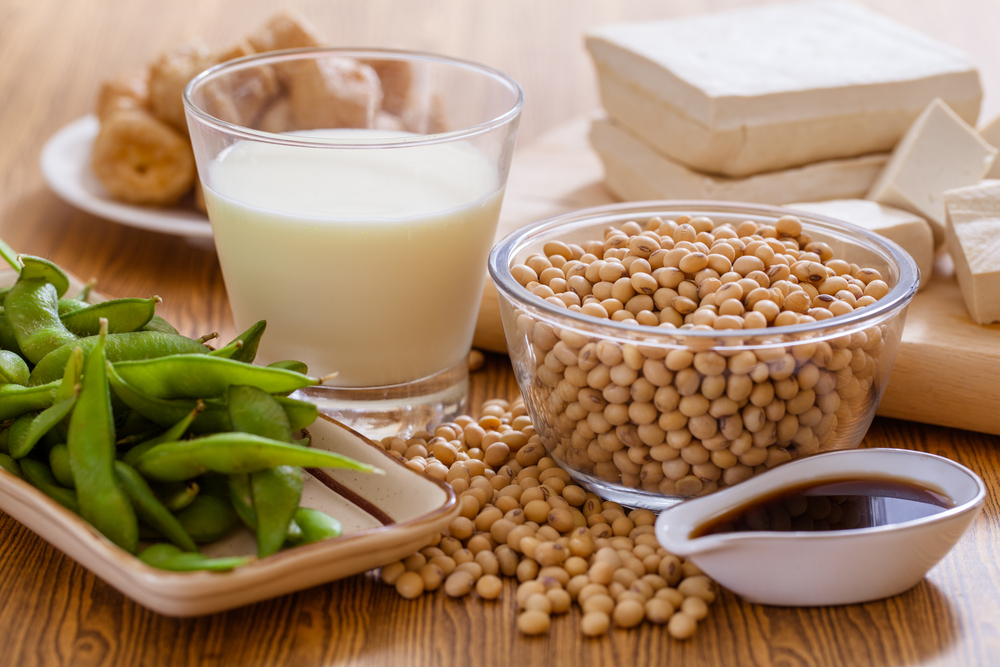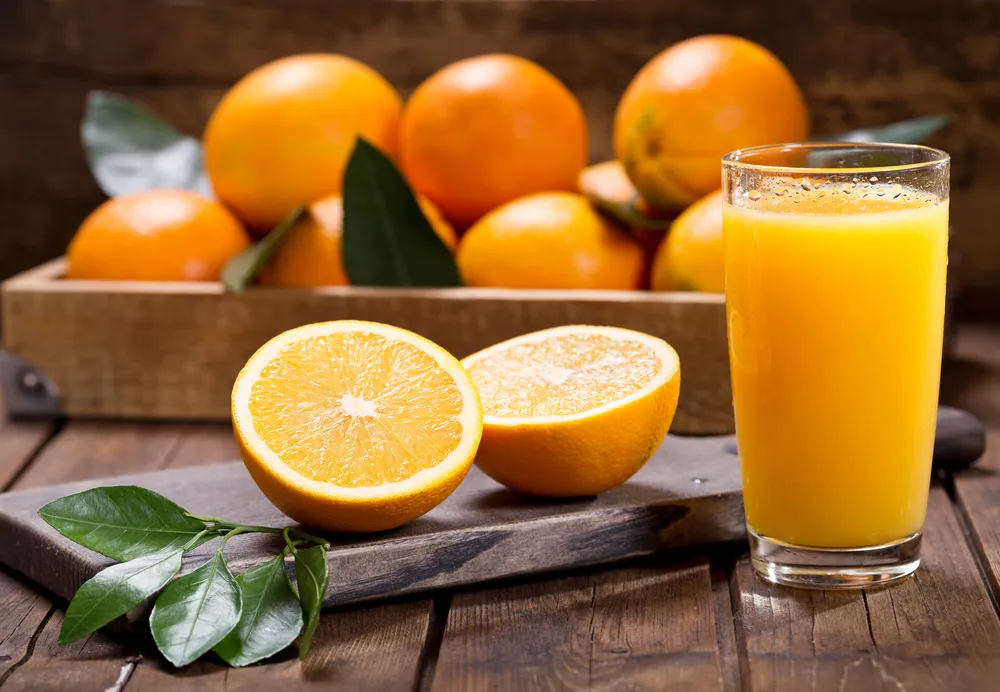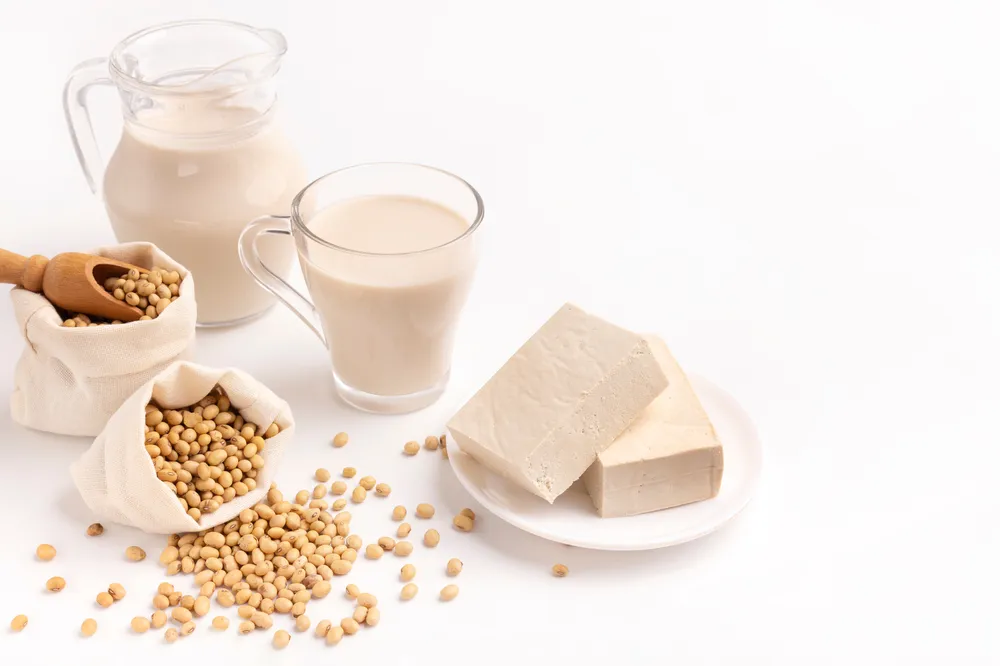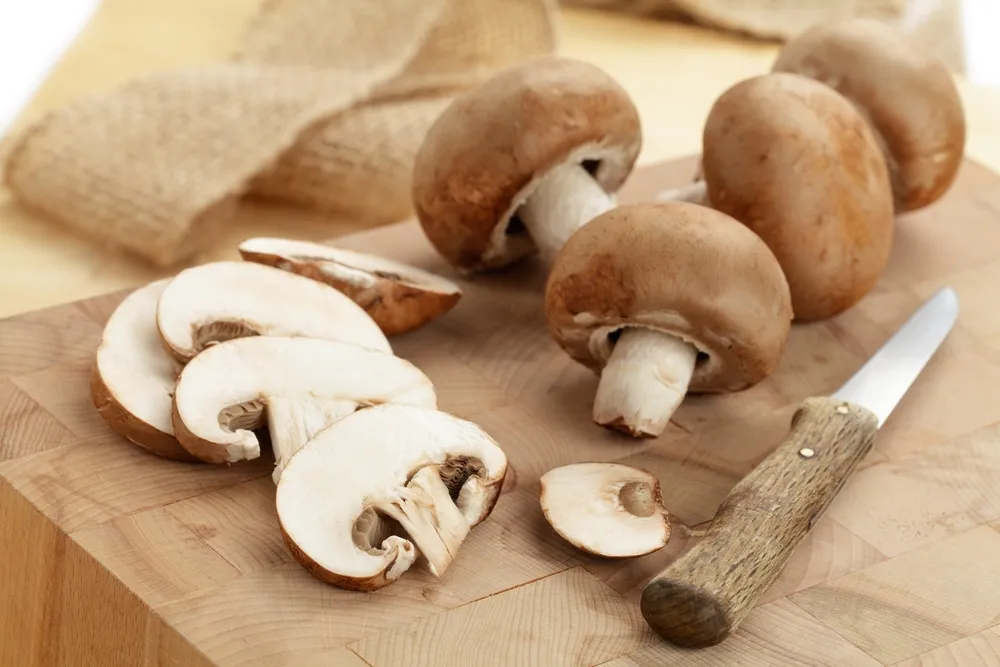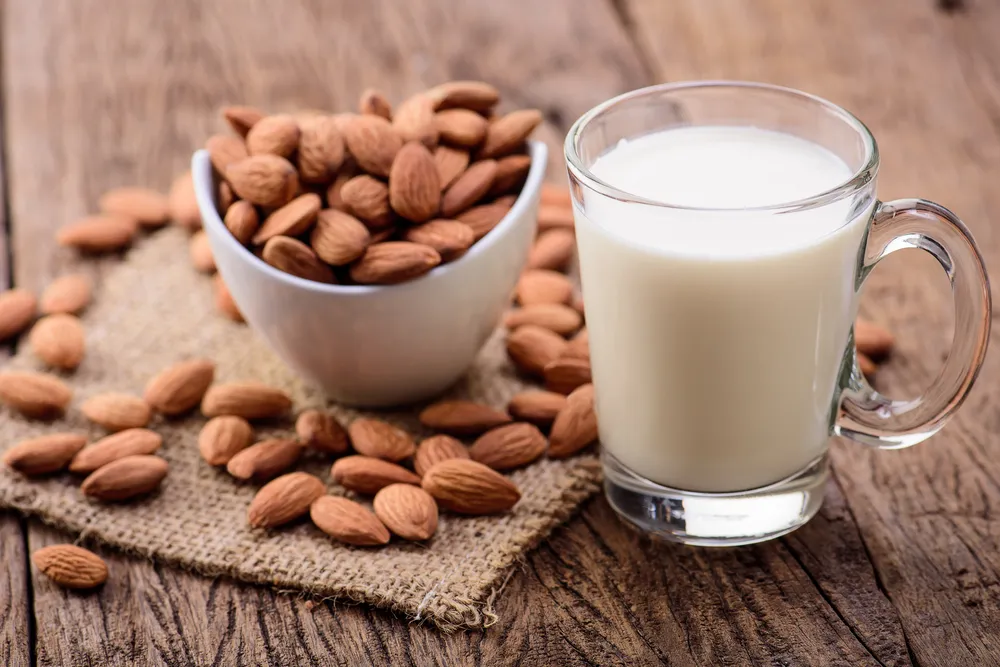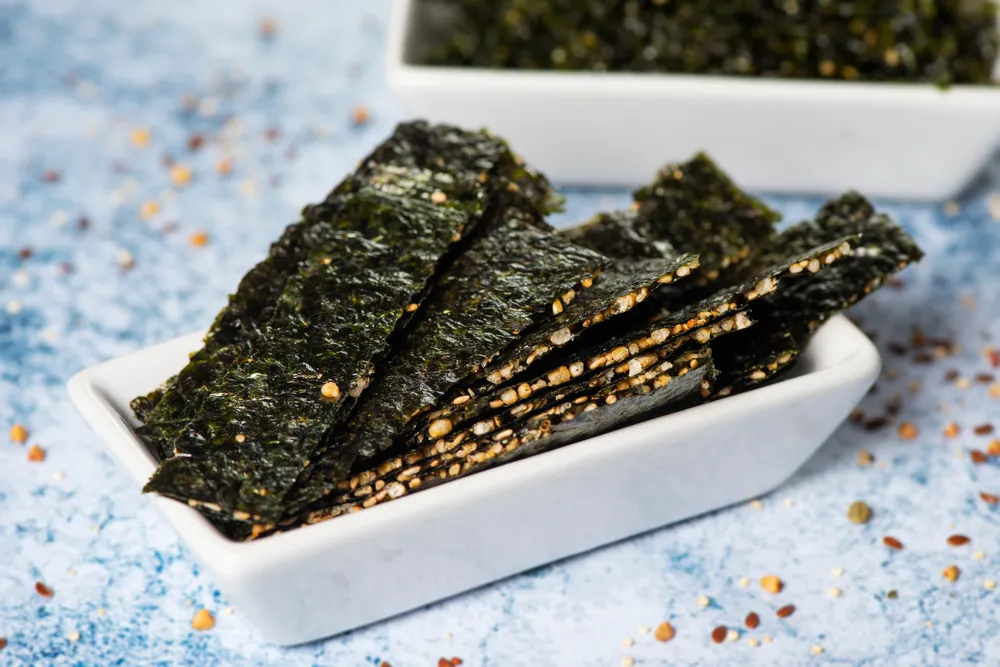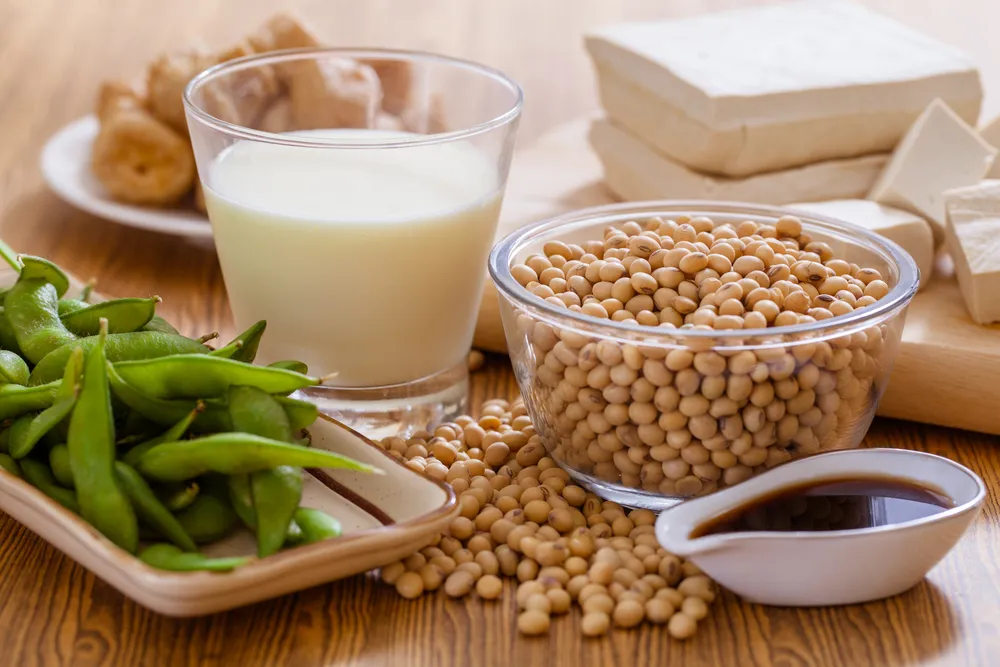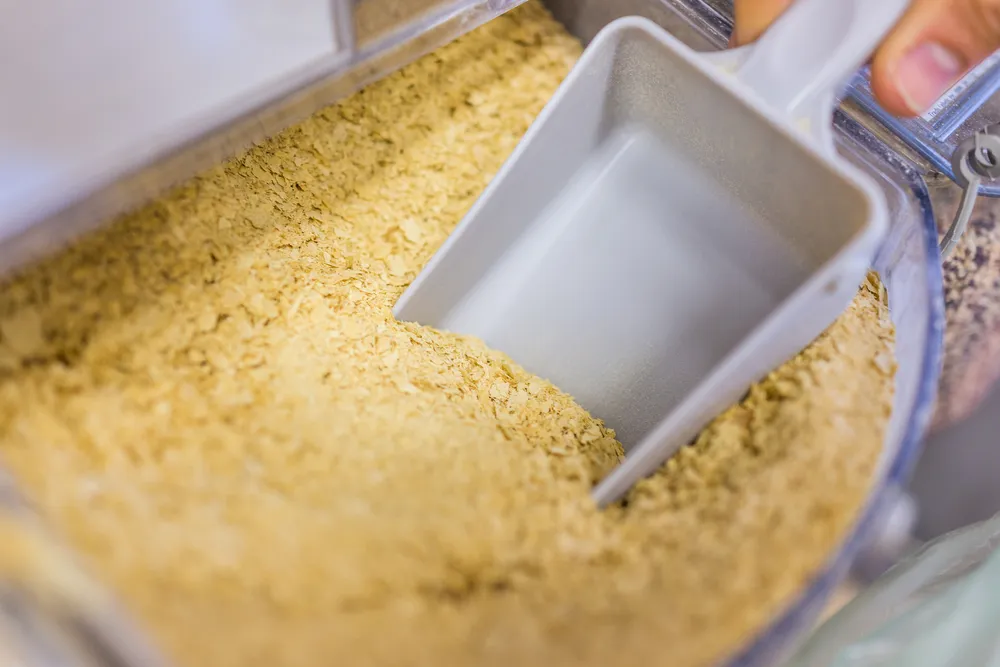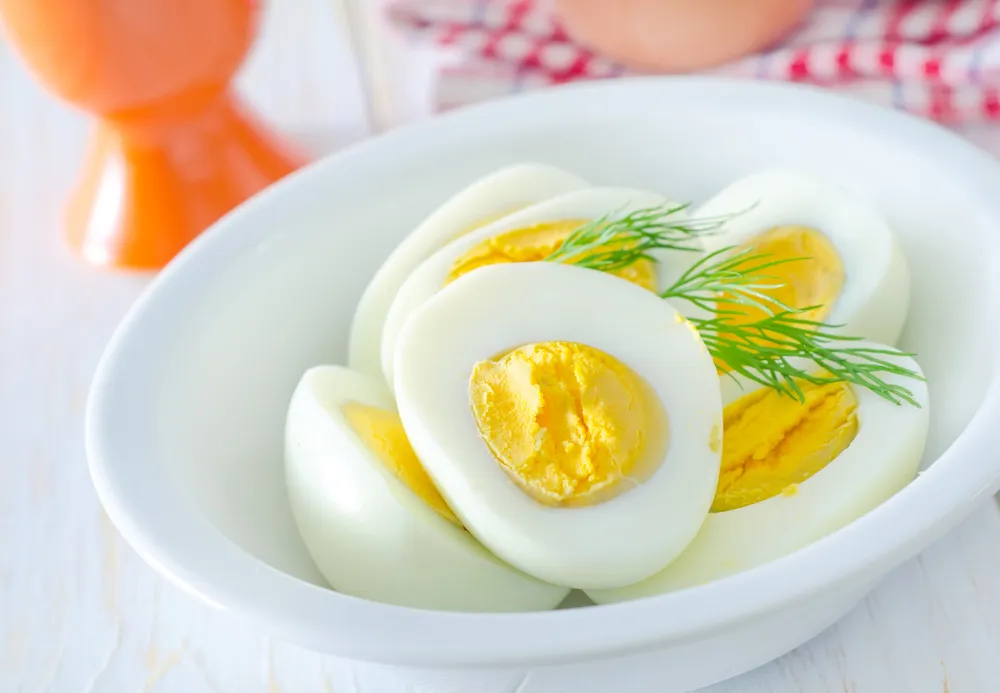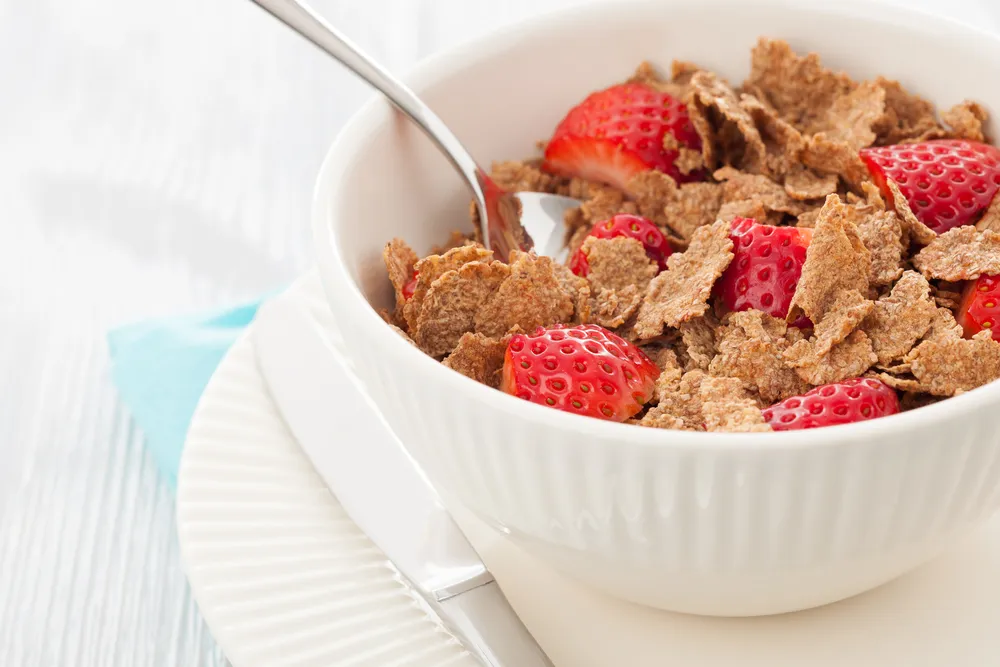Vitamin B12 has a pretty important role in the body. According to the National Institutes of Health, this nutrient is critical to keep your blood and nerve cells happy (and preventing anemia), and is even responsible for making DNA.
There are a few ways to add B12 to your body – it can be from beef or turkey, as examples. Some people opt for B12 injections, which may carry some unintended effects in rare cases. However, those options aren’t for everyone, especially if eating meat and getting needles is off the table. So, here’s a guide to the best plant-based sources of B12:
Try a Fortified Juice
One great way for vegans and vegetarians to get their daily B12 intake is to sip on a fortified juice. A few notable brands that create fortified juices are Naked and Bolthouse Farms.
For example, one cup of Naked’s Blue Machine drink contains 11.4mcg of Vitamin B6, while Bolthouse Farms Green Goodness drink contains 1.41mcg.
Cook some Tofu
Tofu is a favorite among many vegans and vegetarians, and can actually be a good source of vitamin B12 as well. It’s important to note that not all tofu is made the same, so be sure to check the nutrition label to ensure your tofu of choice is fortified with vitamin B12.
One serving of tofu (3 to 4-oz) contains over half of your daily B12 requirements, which makes it a popular choice among vegans and vegetarians. Tofu is also a good source of calcium, vitamin D and iron. It can be eaten alone or used as an ingredient in tofu scrambles, soups or salads.
Try Flavorful Fungi
Mushrooms can be a nutritious and delicious addition to many vegeterian/vegan meals, and according to Healthline, they pack a bit of a B12 punch. More specifically, the source touts the benefits of the shiitake mushroom for this reason.
However, while this fungi does contain B12, you have to eat a fair bit of it to meet the daily requirement (which is 2.4-mcg for adults, according to the Mayo Clinic.) How much? About 50-grams of dried shiitake, notes Healthline. But instead of just sitting and munching these tasty mushrooms, you can add it to stir fries, veggie noodles and more.
Get Smooth With Almond Milk
You could drink dairy milk, which contains a healthy dose of B12. According to DairyNutrition.ca, just 250-ml of dairy milk will provide almost half your daily requirement. However, if you’re a vegan, then animal products are not going to work for you (although some vegetarians consume dairy.)
However, you can turn to alternative milks such as almond milk or coconut milk, which have B12 added to them (fortified.) According to UnlockFood.ca, fortified almond beverage serves up 1.1-mcg of B12 per 250-ml (the equivalent of 1-cup), which is also close to half of what your body needs per day. Just make sure you review the vitamin content on the carton.
Dive Into Seaweed
Admittedly, this may not sound like the most appetizing option. But we’re not just talking about jumping into the water and munching on plants – we’re talking about nori, a type of seaweed popular in Asian food markets (and also referred to as purple laver.)
Healthline points to a study that suggests eating 4-grams of dried nori each day will fulfill your daily need of B12. It can be eaten on its own, but it’s also a healthy addition to sushi, according to the source. Meanwhile, you can find plant-based sushi if fish products aren’t part of your diet.
Find Joy With Soy
An article on the U.S. National Library of Medicine touts soy as a way for vegetarians/vegans to get their B12. However, while it notes that soybeans alone are not sufficient as a source of the vitamin, fermented soy is – in the form of tempe.
The source explains that tempe contains a “considerable” amount of B12. However, how much B12 per 100-grams of this fermented soy food seems to vary from 0.7 to 8-mcg. “Bacterial contamination during tempe production may contribute to the increased Vitamin B12 content of tempe,” it notes.
Make Time For Tea
Sitting back and relaxing your muscles once in a while is good for the body and soul. Having a nice mug of tea to go with it can make kicking back even better. As a bonus, some tealeaves (including black tea) appear to have some B12 benefits, according to the same article on the U.S. National Library of Medicine.
The source says there’s 0.1 to 1.2-mcg of B12 per 100-grams of some tealeaves. It cites a study that involved B12-deficient rats being given a Japanese fermented black tea (known as Batabatacha) for 6-weeks. The result was “significantly” less methylmalonic acid – an indicator of low B12 – in the rodent urine, it says. However, in humans, drinking even half a gallon or so of this fermented tea will not meet daily B12 requirement, it adds.
Rise With Yeast
Apparently nutritional yeast – the same kind you’d find in beer or bread – can help supplement your vegan diet with B12, according to Healthline. But you’ll likely want to make sure the version you buy is fortified (although even unfortified yeast contains B vitamins through fermentation), adds the source.
It explains that this yeast can actually have a “cheesy, nutty, or savory flavor.” Along with vitamins (which are boosted through fortification), the source says nutritional yeast packs protein as well as zinc, selenium, manganese, and other important nutrients. If you’re consuming nutritional yeast for the first time, there are some potential side effects to be aware of.
Get Cracking With Eggs
Although this animal product is almost surely off the list for vegans, it may be acceptable to some vegetarians. Healthline explains that just 1-large, hard-boiled egg contains 0.6-mcg of B12, which is about a quarter of what your body requires per day.
Along with vitamins, the source also points out that eggs are a high source of protein that your body needs for a number of reasons including proper immune system function. You can add a hard-boiled egg to a salad for a B-boost, but there are many more ways to eat an egg, from scrambled to quiches.
Let’s Get Cereal
Okay, maybe that headline doesn’t quite deliver, but fortified vegan cereal does deliver – B12, that is. LiveKindly.co lists fortified breakfast cereals as a source of the vitamin, including Quaker Puffed Rice Cereal, Total Corn Flakes, Kellogg’s All-Bran, and several others (be sure to check the label for contents.)
If you’re pairing your vegan cereal with milk, be sure to choose the almond milk we mentioned or another equivalent non-dairy type if animal products are a no-no. The source says for hot cereal, you can try Kashi Heart to Heart Instant Oatmeal that will apparently cover your entire daily requirement of B12.
Try Meatless Meats
What if you’re a meat-lover that wants to switch to a more plant-based diet? Luckily, the food industry has you covered. FreshNLean.com says that plant-based meats can deliver the B12 you need – and specifically mentions a “Moving Mountains” burger that delivers up to 100-percent of the daily intake of this vitamin.
However, while you can find quite a wide variety of meatless meats on the market now, you need to check the label to ensure you’re getting a fortified version that contains B12 and other nutrients. Be aware that meat alternatives can contain higher levels of sodium, as MedicalNewsToday.com points out.
Take a B12 Supplement
If you’d like to lean on a supplement to ensure you’re getting enough B12, this is definitely another viable option. Taking a B12 supplement is an effective way to ensure you’re getting the right amount of this essential nutrient without having to make any major changes to your diet.
One thing to note, however, is that not all B12 supplements are made the same. Some may include animal-based filler materials, which makes them unsuitable for those that are vegan. Be sure to double check the nutrition label, consult a doctor and do your research to find a B12 supplement that is suitable for you.
